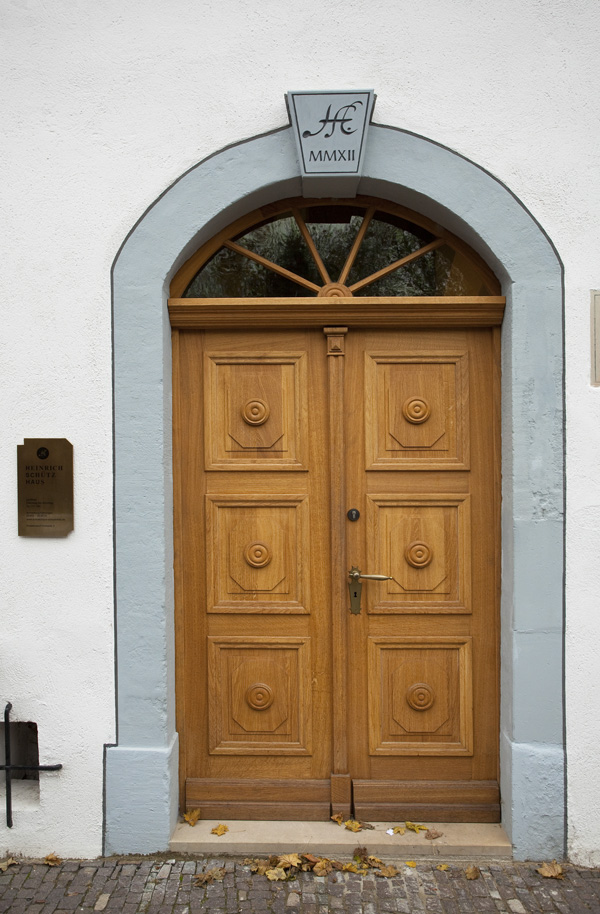
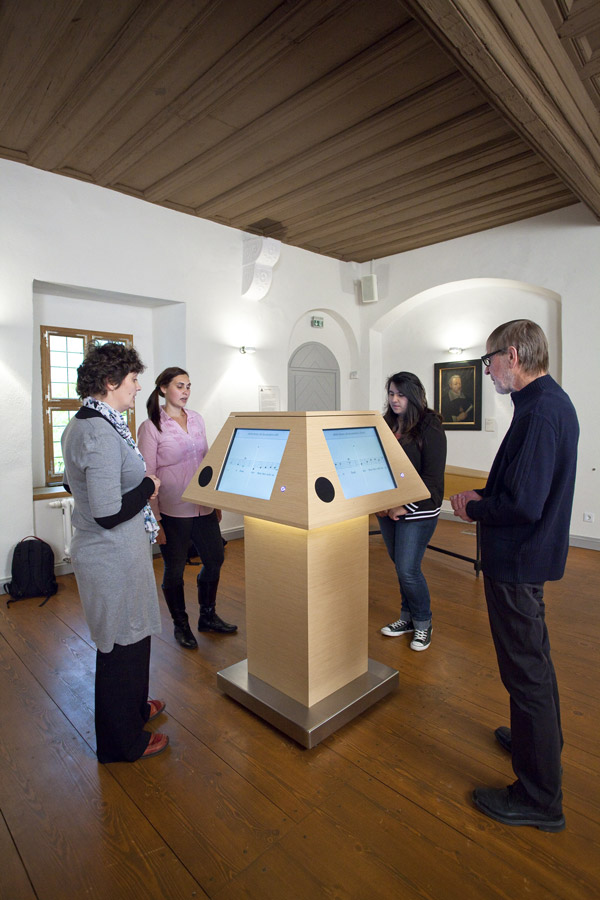
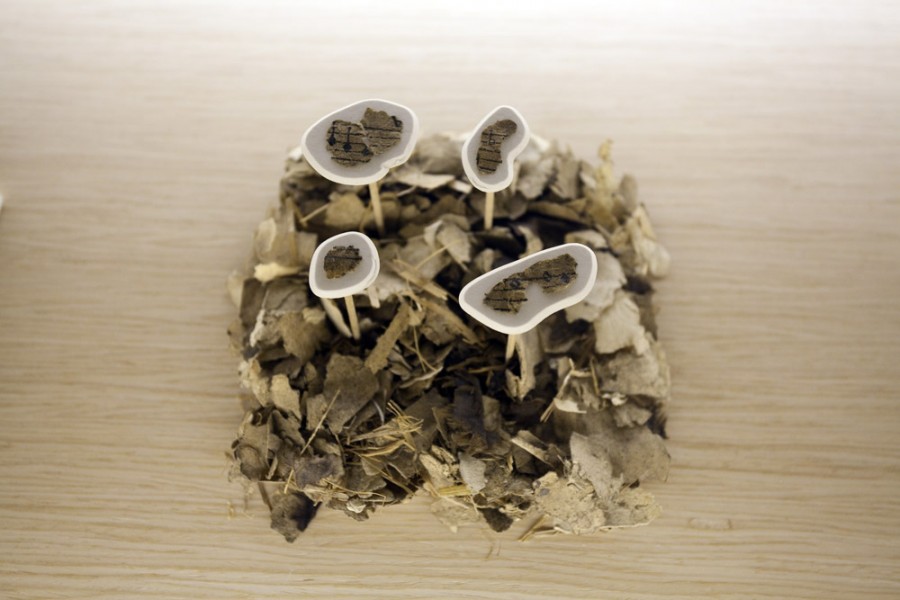
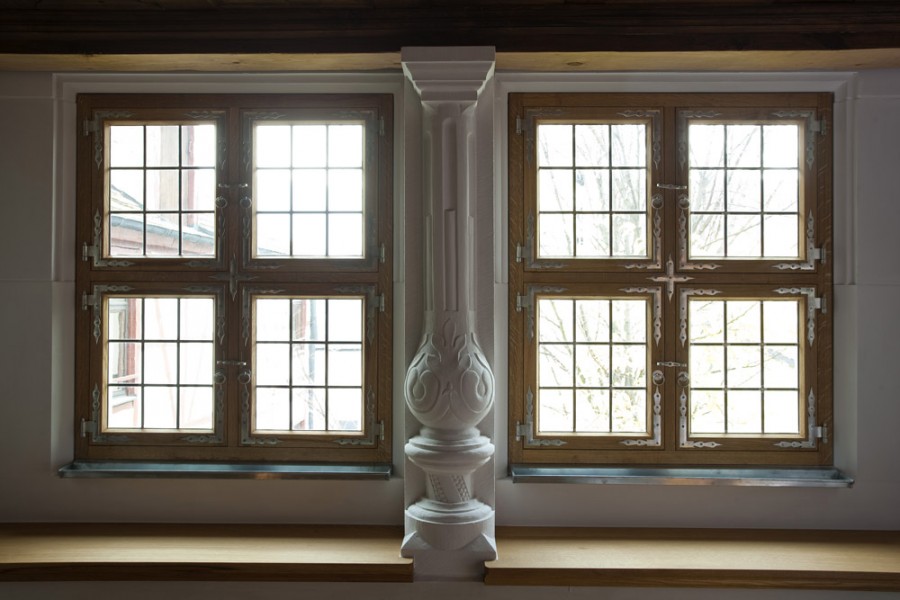
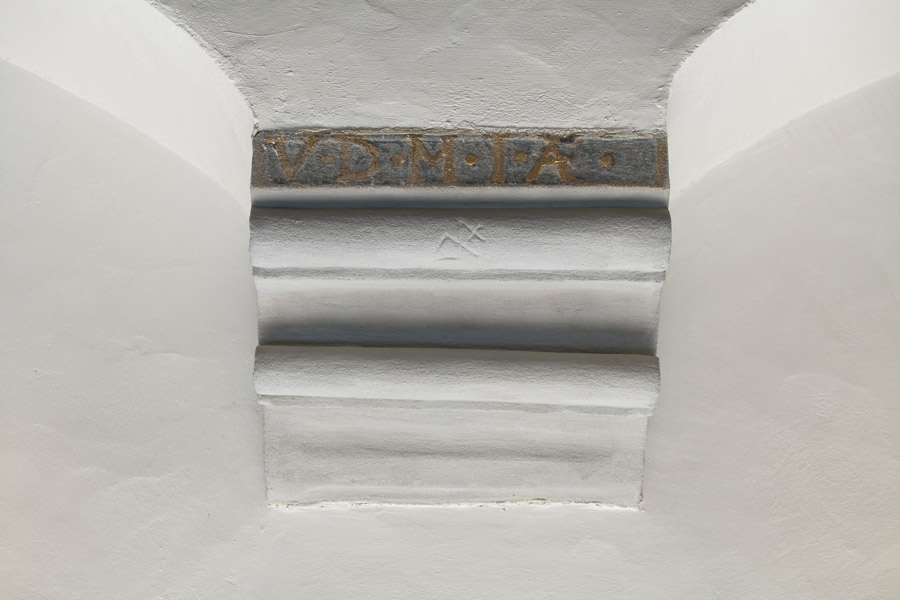
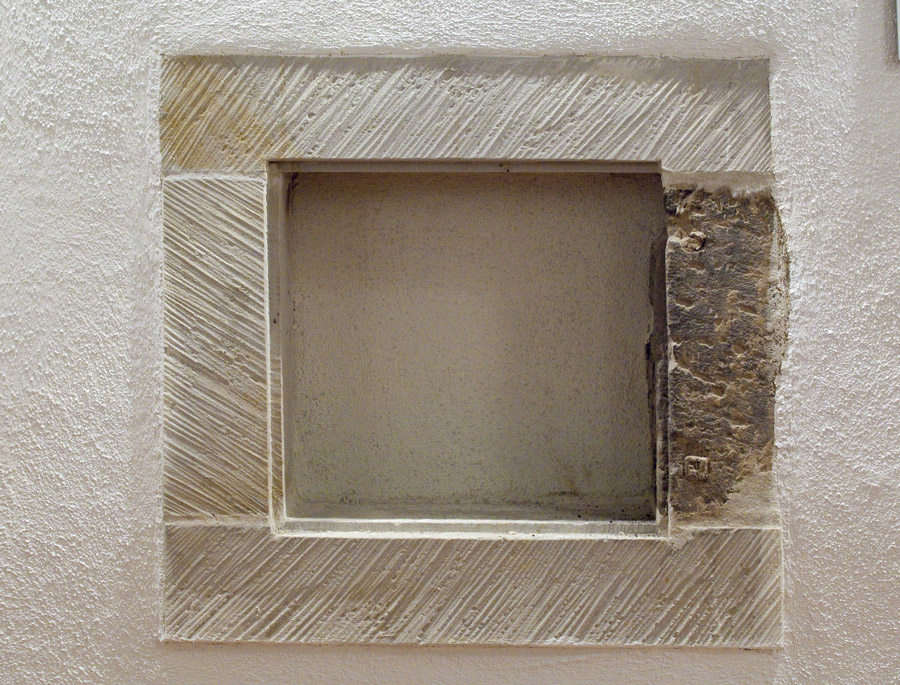
in the Heinrich Schütz House
The Heinrich Schütz House is the only one of the composer’s homes to be preserved in its original form today. Schütz bought the house in 1651 and spent his retirement there from 1657 to 1672. Up in the attic, Schütz – Kapellmeister at the court of the Saxon Elector – composed his late masterworks. He completed his very last composition, which he called his “Swan Song”, in 1671.
The Renaissance house, built in1552, was carefully restoredbetween2010 and2012. Thenewly opened, permanent exhibition on Schütz’s life and works is housed in the rooms in which he composed the latter. The absolute highlight is the restored “Komponierstube” or “composing parlour” which features two autograph fragments of music by Schütz that were discovered inside the building. Numerousmusical examples and short films provide insights into HeinrichSchütz’s distinctive compositional style.Children and adults alike can meet the elderly composer by taking a seat on any of the four “Schütz sofas”and listening tofictional podcasts in which Heinrich Schütz reminisces about importantstages in his life. Visitors can also try out one of Schütz’s choral pieces – a “singing music stand” features an audio installation that offers a hands-on experience. Significant architectural details of the building and objects found during the restoration work are clearly identified. As well, our younger guests can follow a colour-coded indoor trail aimed at children, conceived as a playful introduction to the life of Heinrich Schütz.
In 2006, the Heinrich Schütz House was added to the German Government’s “Blue Book” listings of cultural heritage sites that are of special national importance. The permanent exhibition received the international “Iconic Award” in 2014.
Ground floor
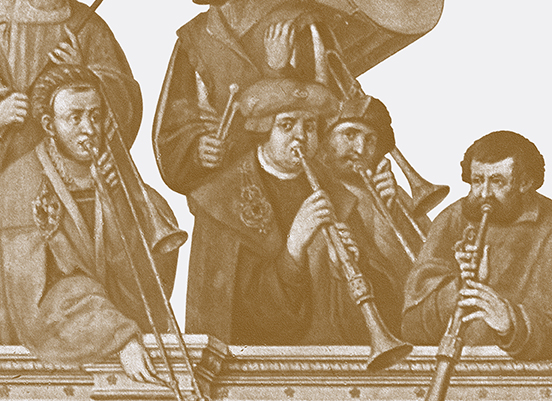
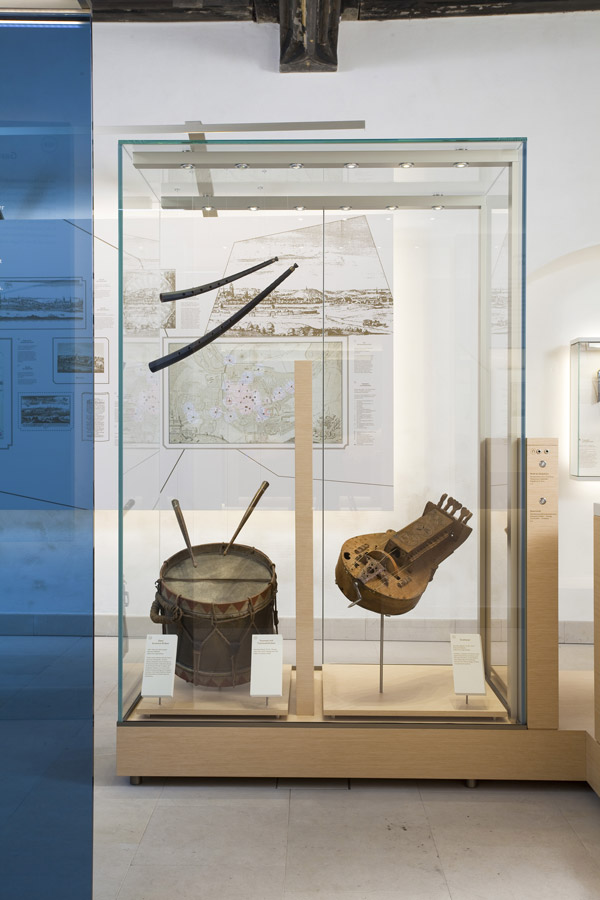
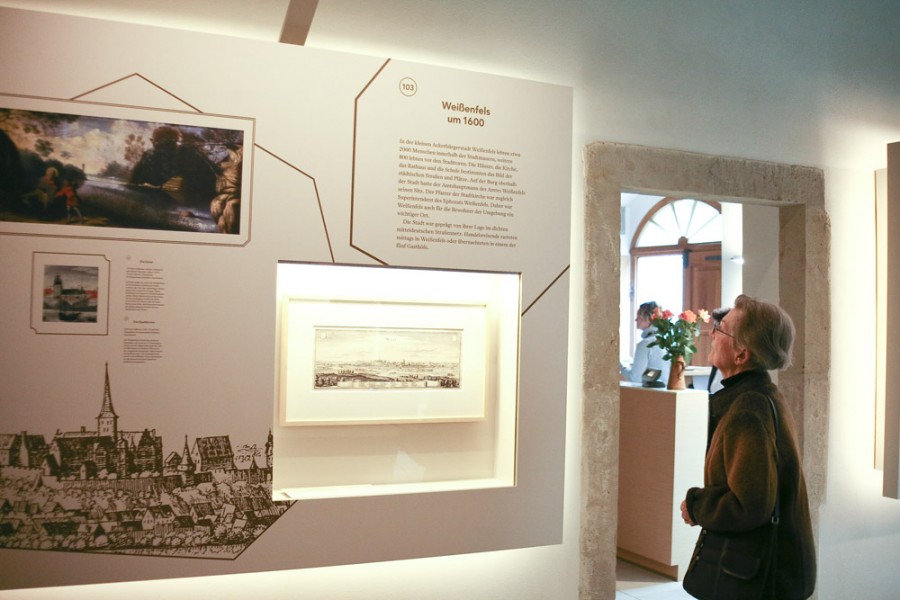
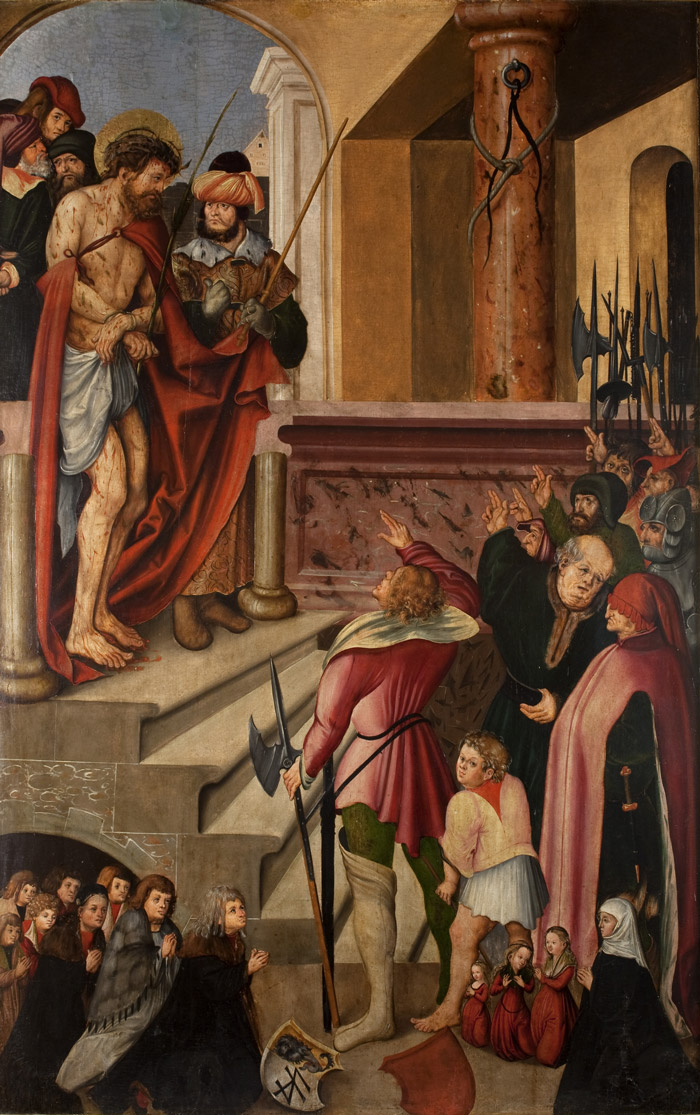

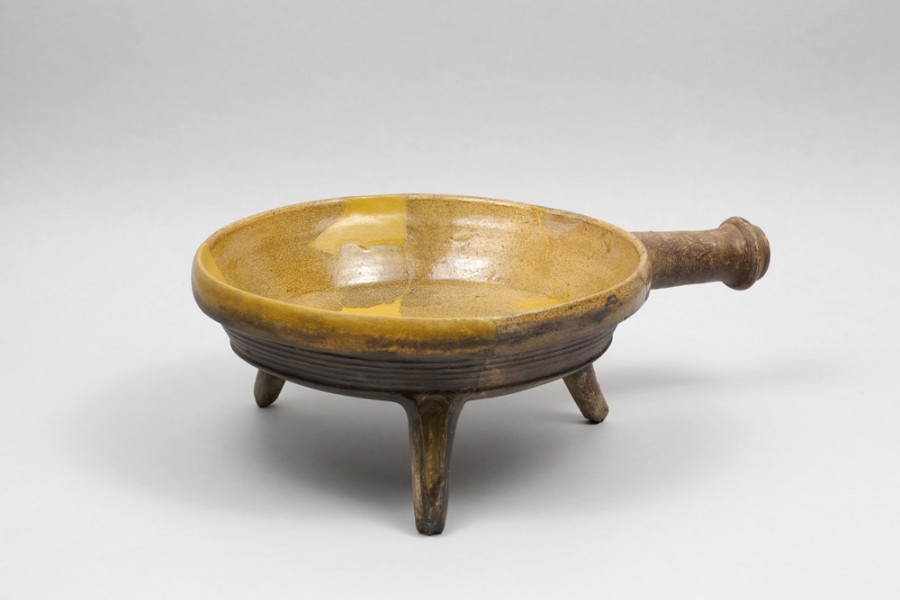
Weissenfels had a population of 2000 in 1590 when Heinrich Schütz’s father, Christoph Schütz from Köstritz, and his wife and six children moved to the little farming town on the river Saale. The inhabitants lived from agriculture, wine-growing, skilled trades, and tourism. Located 40 km from the commercial hub of Leipzig, Weissenfels was a staging post on the Via Regia – the “Royal Road” – used by many waggoners and merchants. Five inns offered accommodation as well as food and drink to the travellers. Christoph Schütz took over one of them, the “Golden Ring”, near the Saale bridge. It was there that Landgrave Moritz of Hesse-Kassel discovered young Heinrich Schütz’s talent in 1599.
Top floor
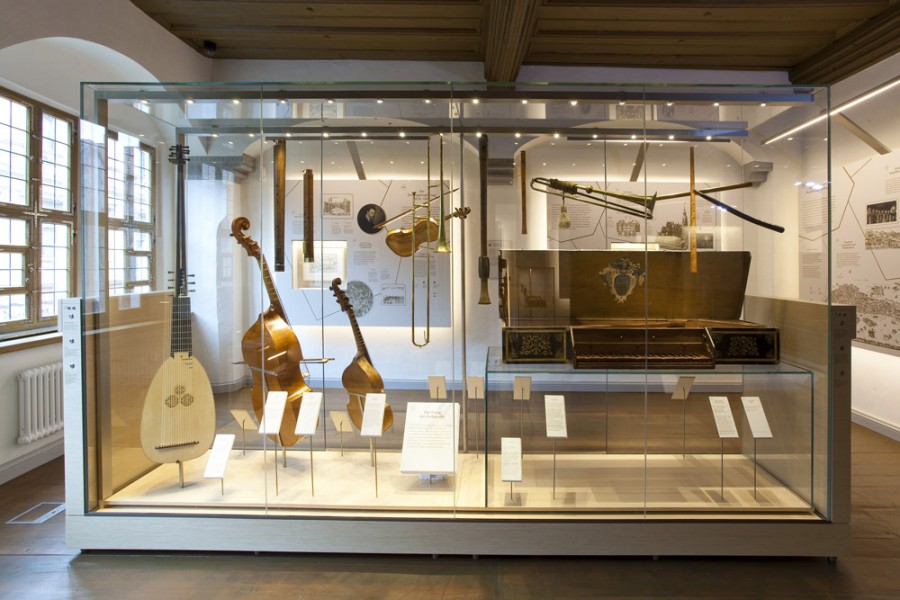
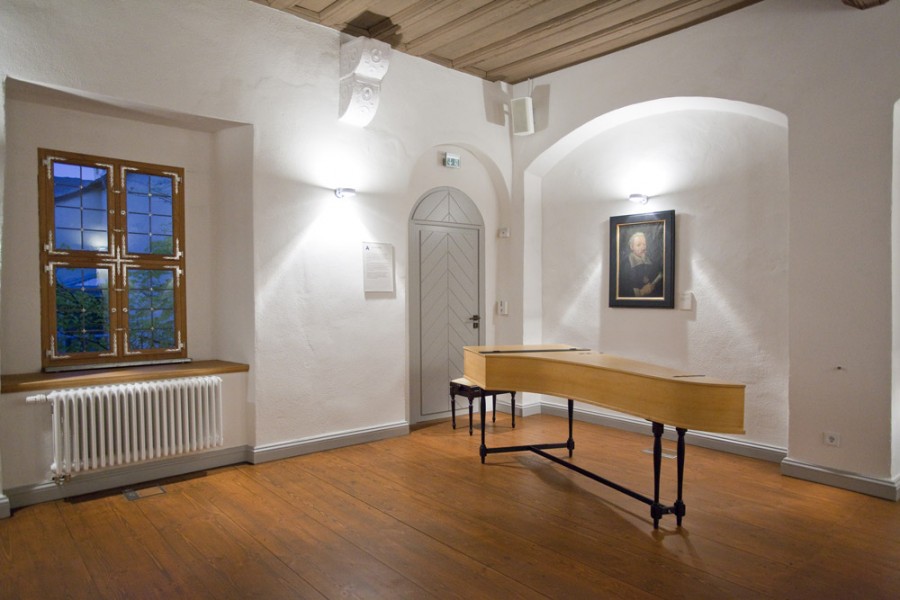
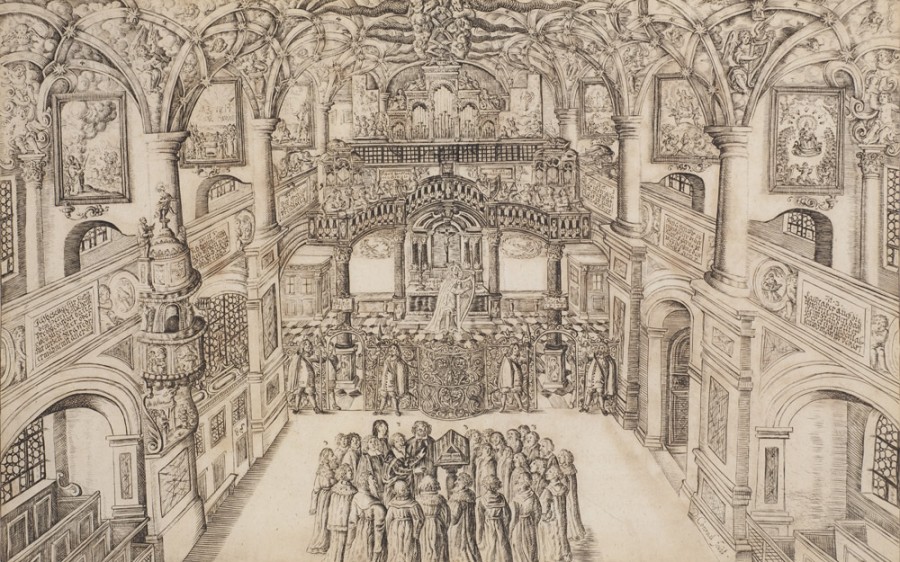
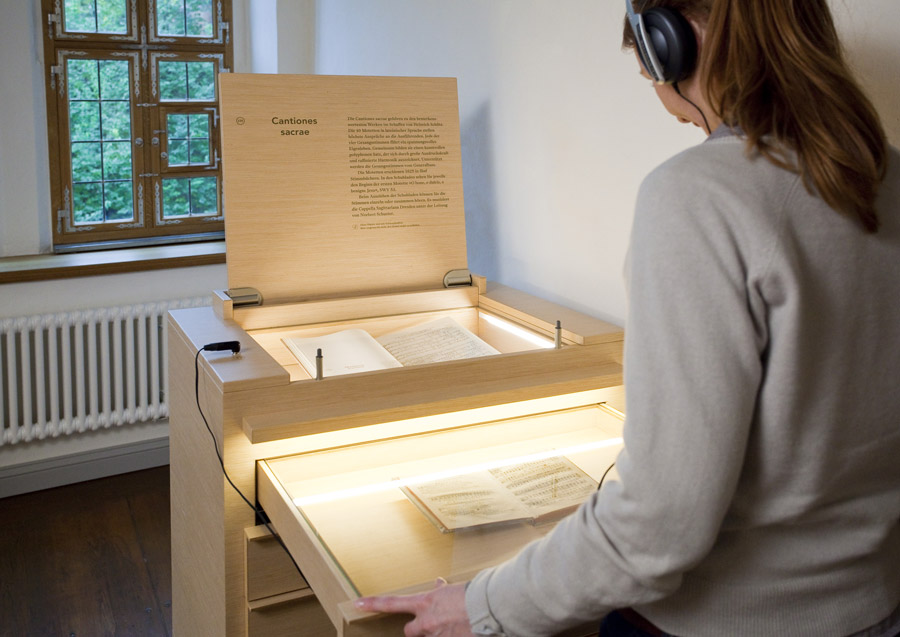
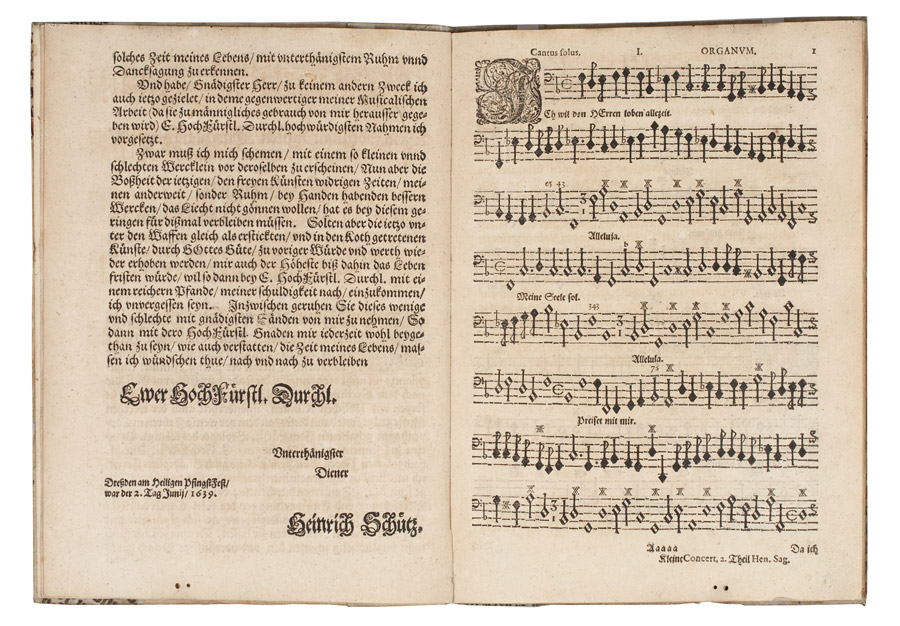
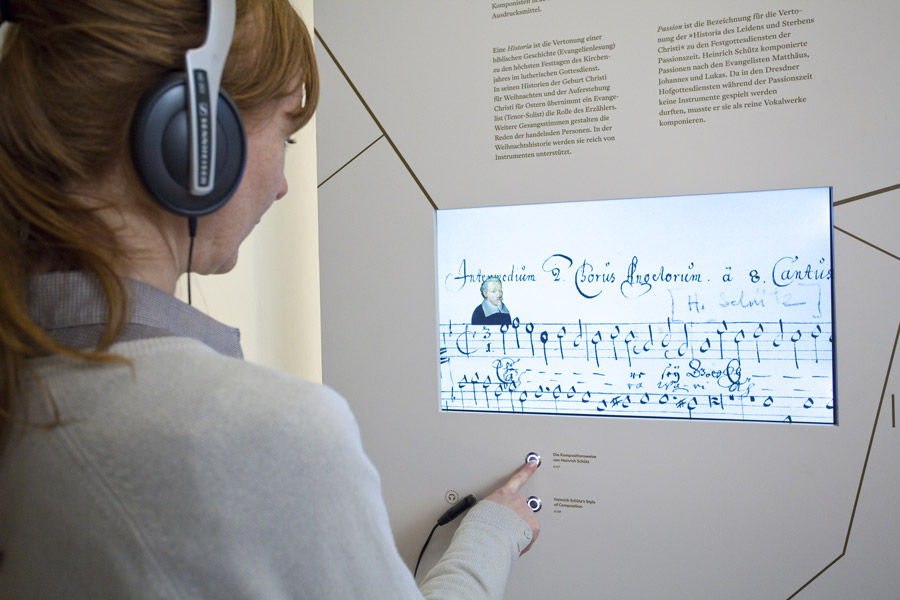

Heinrich Schütz spent most of his professional life as the director of a court music ensemble or “Kapellmeister”. After training as a choirboy in Kassel and studying music with Giovanni Gabrieli in Venice, Schütz accepted a permanent position in Dresden. As the court kapellmeister of the Saxon Elector, he held one of Europe’s most prestigious posts. He directed great celebratory music with the Dresden court ensemble. However, the outbreak of the Thirty Years’ War (1618–1648) caused German court music to decline. Frequent trips also took the composer to other courts, including Denmark and Italy.
Heinrich Schütz composed exclusively for the human voice. More than 500, primarily sacred works,have been preserved. Schütz published his most important compositions himself.
Attic
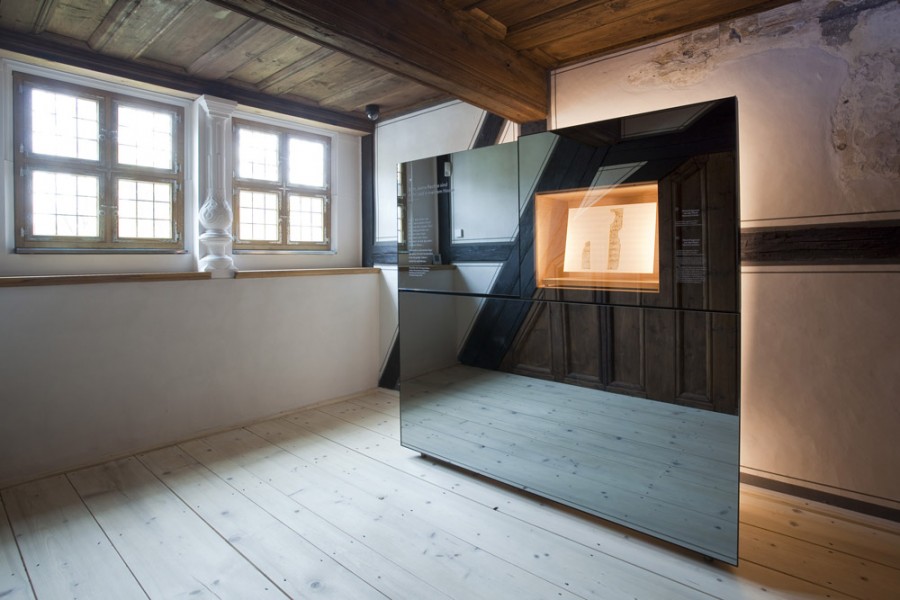
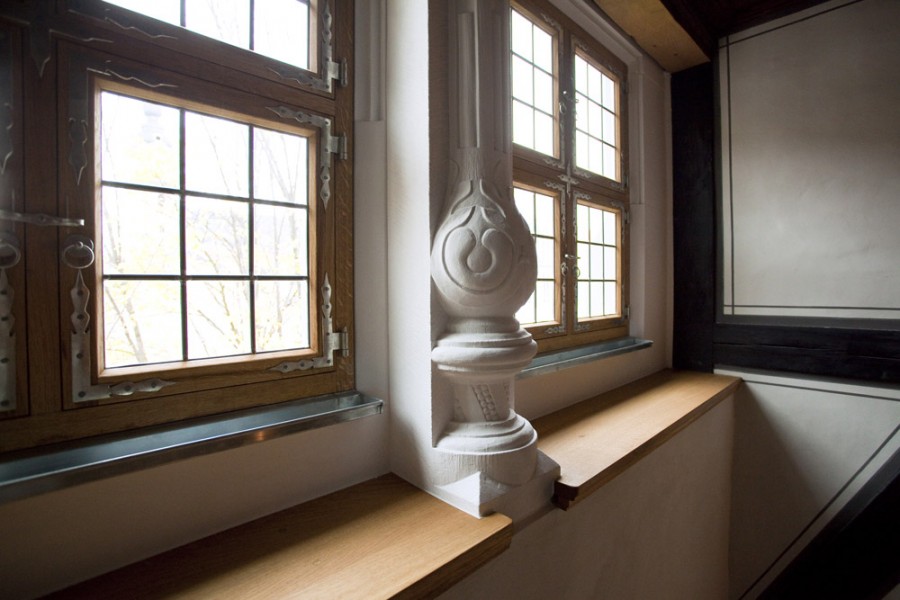
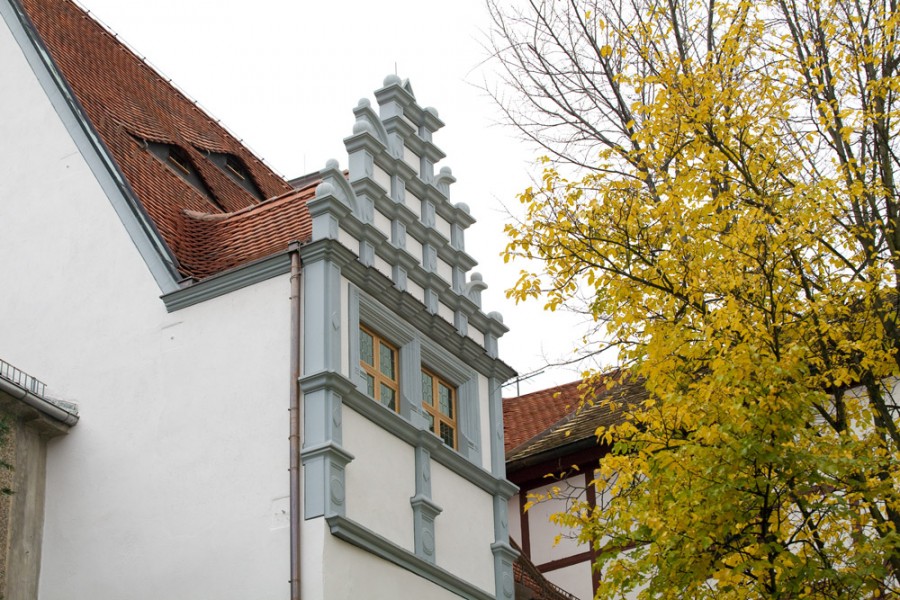
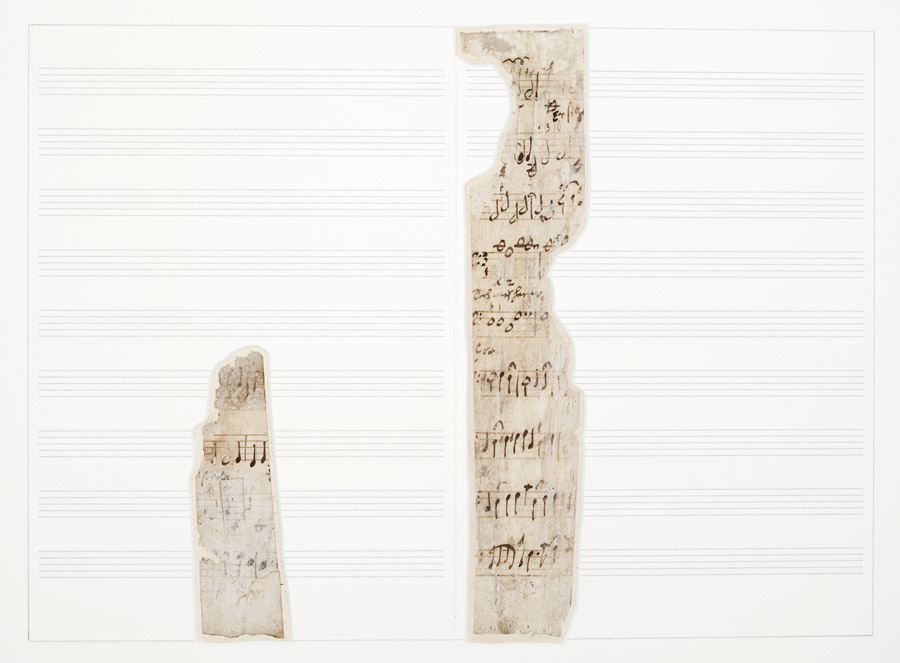

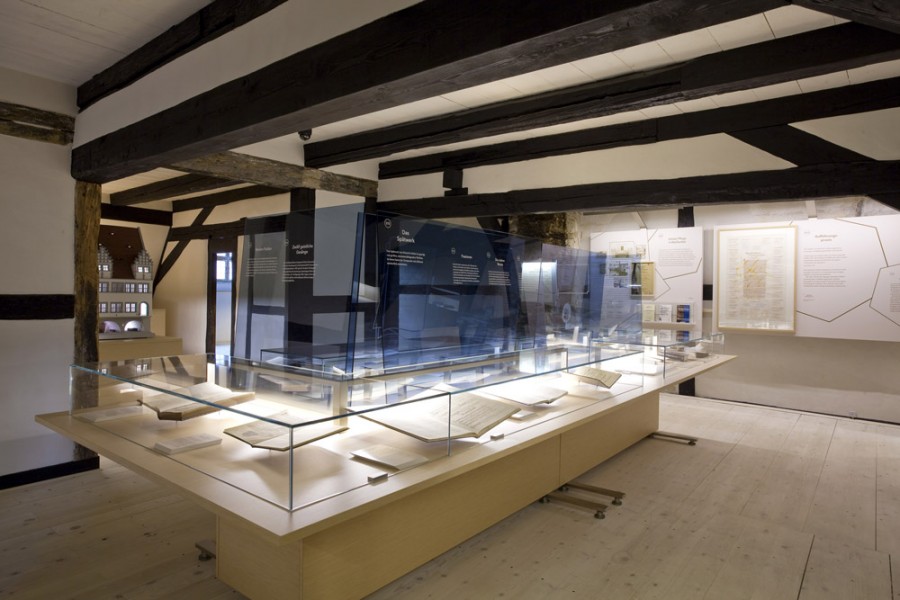
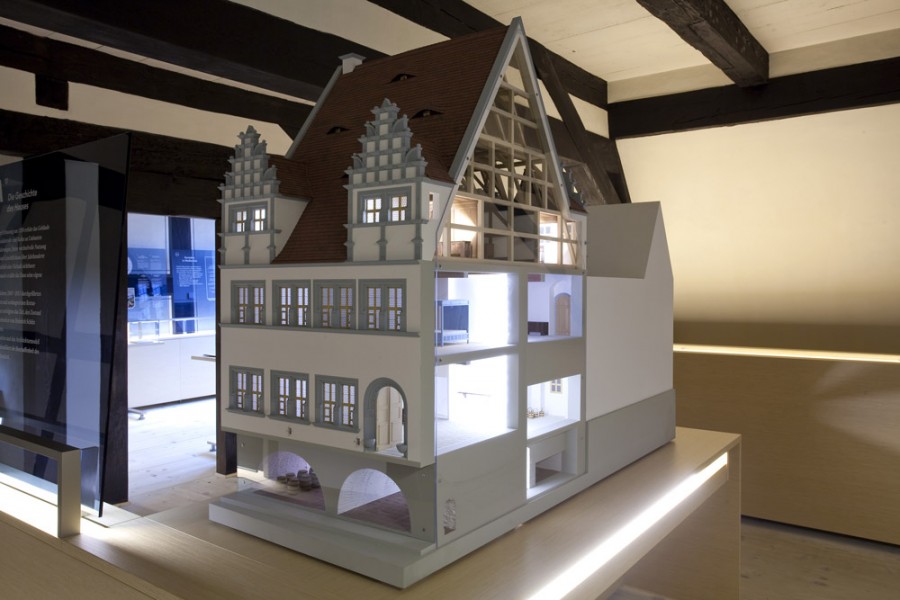
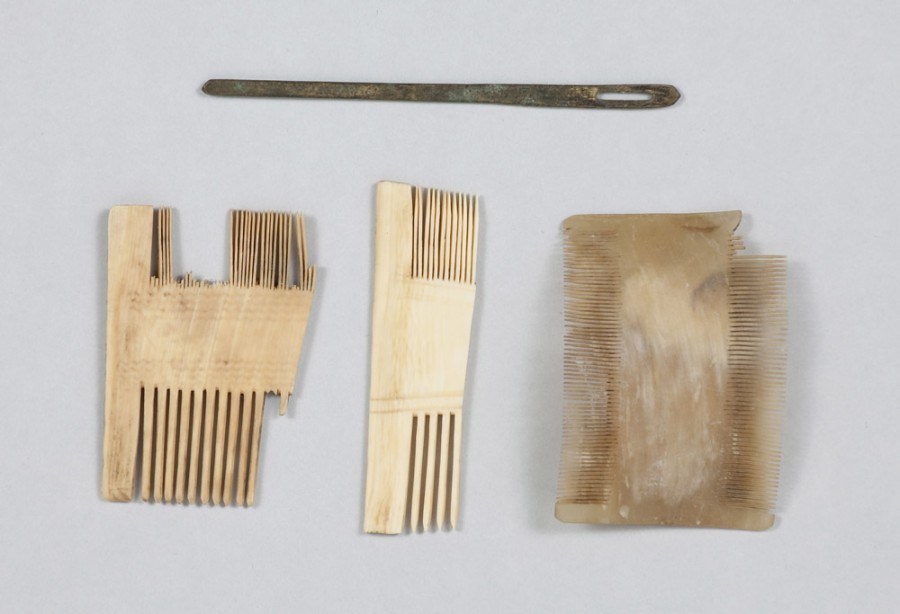
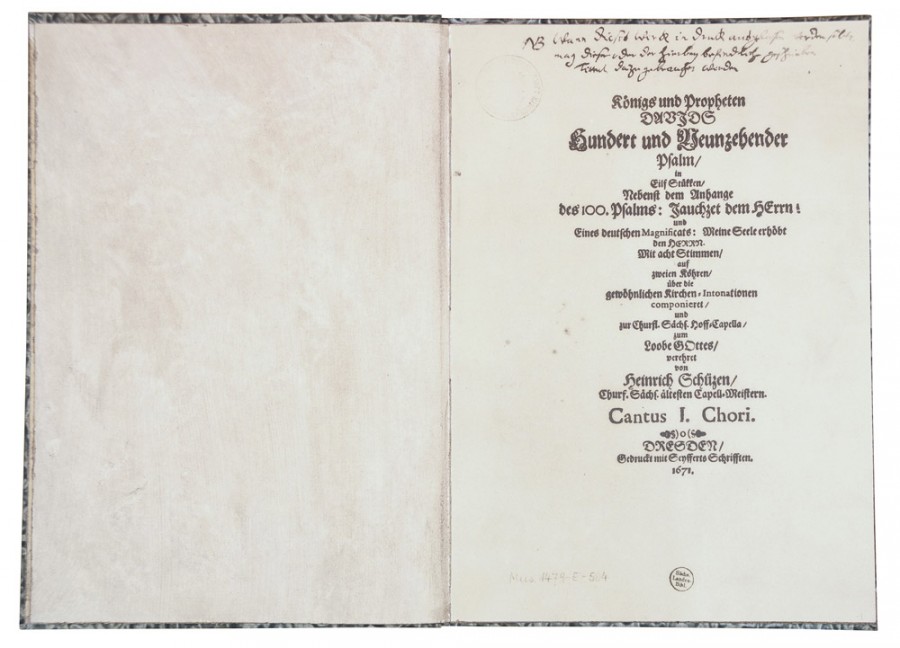
The attic houses the building’s most important room, the restored “Komponierstube” (composing parlour). This is where the composer wrote his late masterpieces – the passions, the Christmas Oratorio, and his last work, the “Swan Song”.
Museum visitors will learn about how Heinrich Schütz lived and worked into old age in this building, whom he corresponded with and was visited by, and how he prepared for the end of his life. Priceless handwritten paper fragments by Schütz were discovered inside the building more than 300 years after his death. They are living proof of the composer being forgotten and then rediscovered. The post-humous interest in Schütz’s music has varied but continues to the present day.
Heinrich Schütz
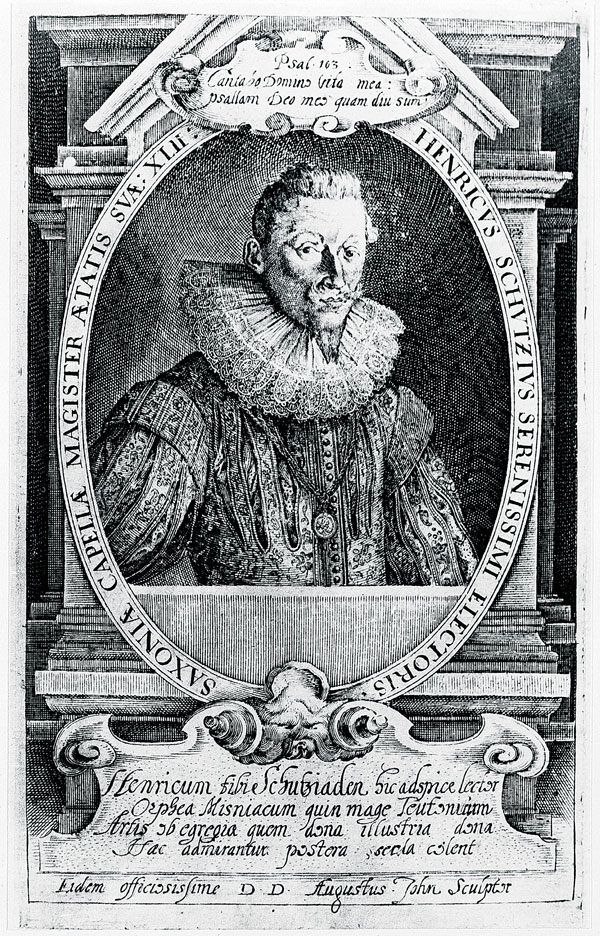
1585
Born in Köstritz, near Gera, on 8 October, as the son of innkeeper Christoph Schütz and Euphrosine Schütz, née Bieger.
1590
Moves to Weissenfels; Christoph Schütz takes over the “Golden Ring” inn from his father, Albrecht Schütz; young Heinrich’s initial musical education is likely provided by the town cantor Georg Weber and the organist Heinrich Colander.
1599
Landgrave Moritz of Hesse-Kassel spends a night at the “Golden Ring” and offers to have Heinrich educated; that summer, Schütz becomes a choirboy at the Landgrave’s court; schooling at the Collegium Mauritianum in Kassel.
1608–09
Studies law at the University of Marburg.
1609–12
First visit to Italy, stays in Venice; studies composition and organ with Giovanni Gabrieli.
1611
The Italian Madrigals (op. 1) appear in Venice.
1613/15
Second court organist in Kassel
1614
First appointment in Dresden (as organist)
1615
Organist and musical director at the Dresden court
In Weissenfels Schütz’s father Christoph takes over a different inn, “Zum Güldenen Esel” (“The Golden Ass”) on Nikolaistrasse; he renames it to match his own last name – “Zum Schützen” (“The Archer”).
1617–72
Court kapellmeister in Dresden
1618
The Thirty Years’ War commences.
1619
Marriage to Magdalena Wildeck
Psalmen Davids (op. 2)
1621
Birth of daughter Anna Justina
Travels to Breslau (today Wrocław, Poland) with the Elector; composes music for the ceremonial homage of the Silesian estates.
1623
Birth of daughter Euphrosine
Historia der Auferstehung Jesus Christi (op. 3)
1625
Magdalena Schütz dies at age 24.
CantionesSacrae (op. 4)
1627
Pastoral tragicomedy Dafne performed in Torgau.
Da pacemDomine (on the occasion of seven electors meeting in Mühlhausen)
1628
Becker Psalter (op. 5)
1628–29
Second visit to Italy (Venice)
1629
Symphoniae Sacrae I (op. 6).
Buys a house in Dresden
1631
Death of father Christoph Schütz
Funeral motet for Johann Hermann Schein
1633–35
First visit to Denmark; composes celebratory music for the Copenhagen wedding of the Danish Crown Prince Christian and Princess Magdalena Sibylle of Saxony; appointed Kapellmeister of the Danish Royal Court.
1635
Death of mother Euphrosine Schütz
1636
Musikalische Exequien (op. 7).
Kleine geistliche Konzerte I (op. 8)
1638
Orpheus and Euridice (ballet opera)
Death of daughter Anna Justina
1639
Kleine geistliche Konzerte II (op. 9)
1642–44
Second visit to Denmark for the double wedding of the Danish king’s twin daughters; takes trips to Hamburg and other northern German courts before and after.
1647
Symphoniae Sacrae II (op. 10)
1648
End of the Thirty Years’ War
Geistliche Chormusik (op. 11)
1650
Symphoniae Sacrae III (op. 12)
1651
Buys a house on “Niclas Alley” (today Nikolaistrasse 13) in Weissenfels for his retirement years.
1654
Makes a bequest of 100 florins to the residents of the Weissenfels poorhouses.
1655
Death of daughter Euphrosine
1656
Death of the Saxon Elector Johann Georg I. Schütz “retires” in Weissenfels but continues to carry out work for Dresden until his death.
1657
Sells the house in Dresden; moves to Weissenfels; shares a home there with his widowed sister Justina Thörmer.
Zwölf geistliche Gesänge (op. 13)
1662
Sieben Worte Jesu Christi am Kreuz
1663
Organizes court music in Zeitz.
1663/64
Lukas-Passion
1664
Christmas Oratorio
1665
St. John Passion
1666
St. Matthew Passion
1666–71
Schwanengesang (“Swan song”, final work: Psalm 119, Psalm 100, German Magnificat)
1672
Moves to Dresden in January; his sister Justina dies in Weissenfels on 17 May; Schütz dies in Dresden on 6 November.